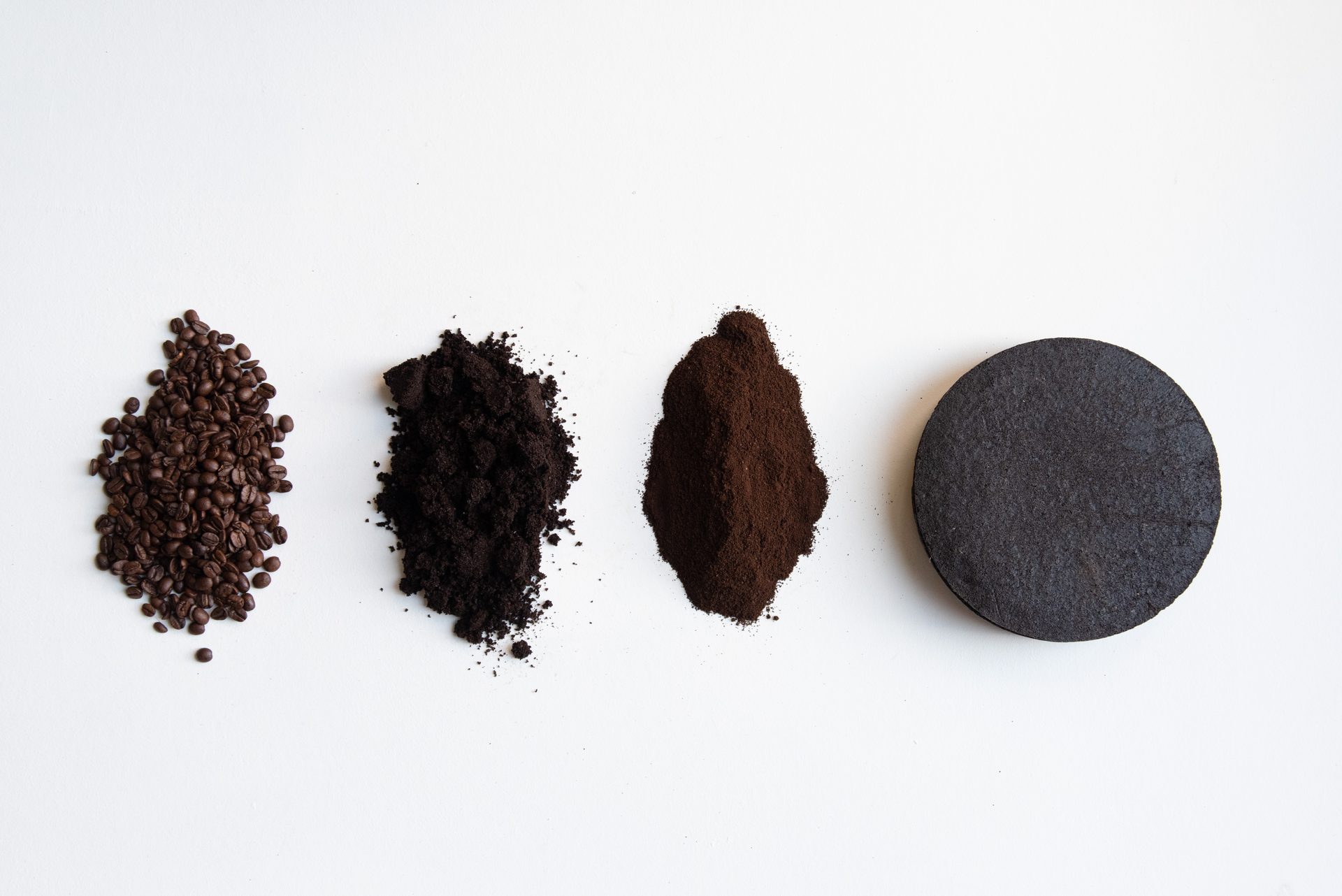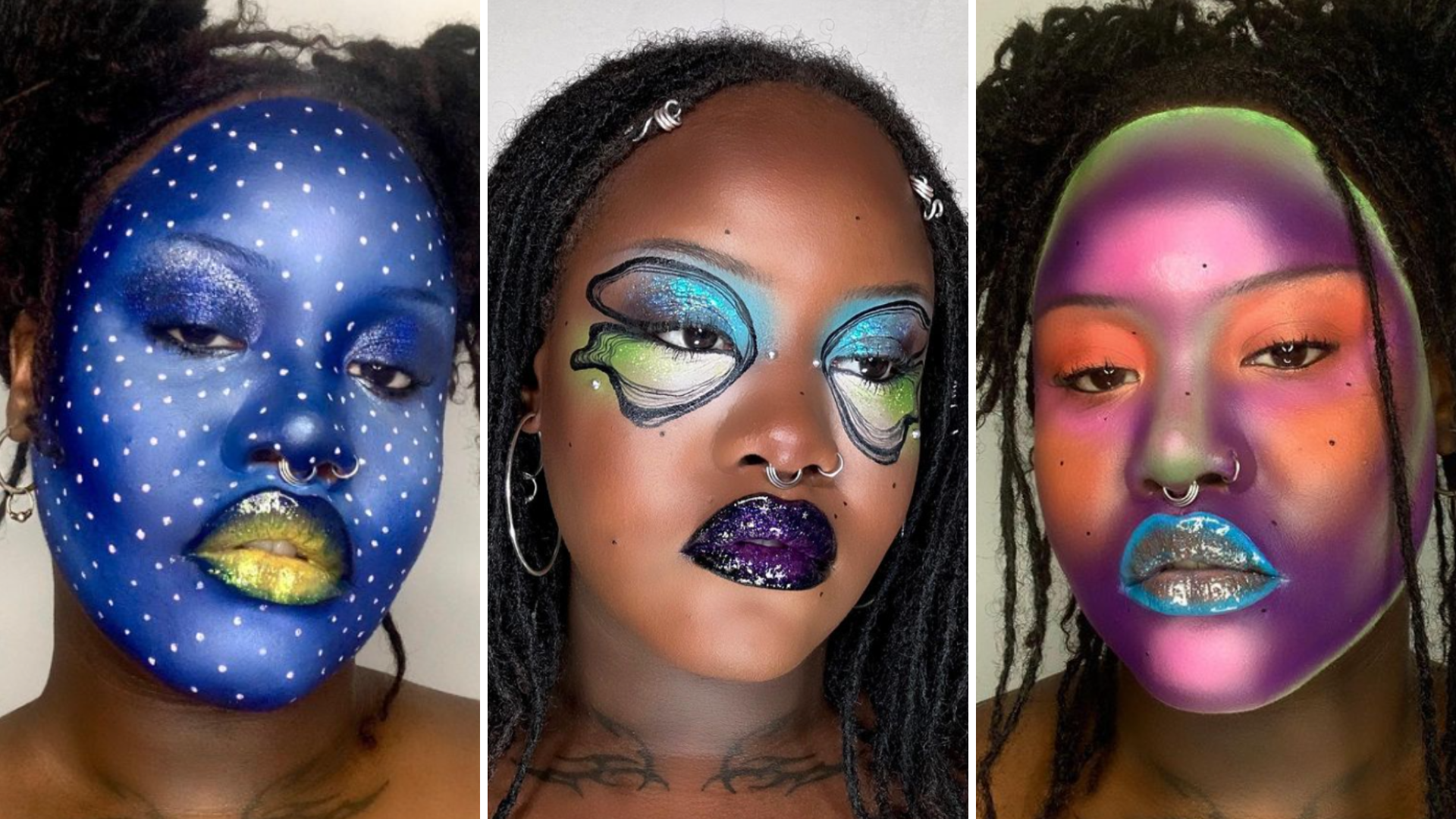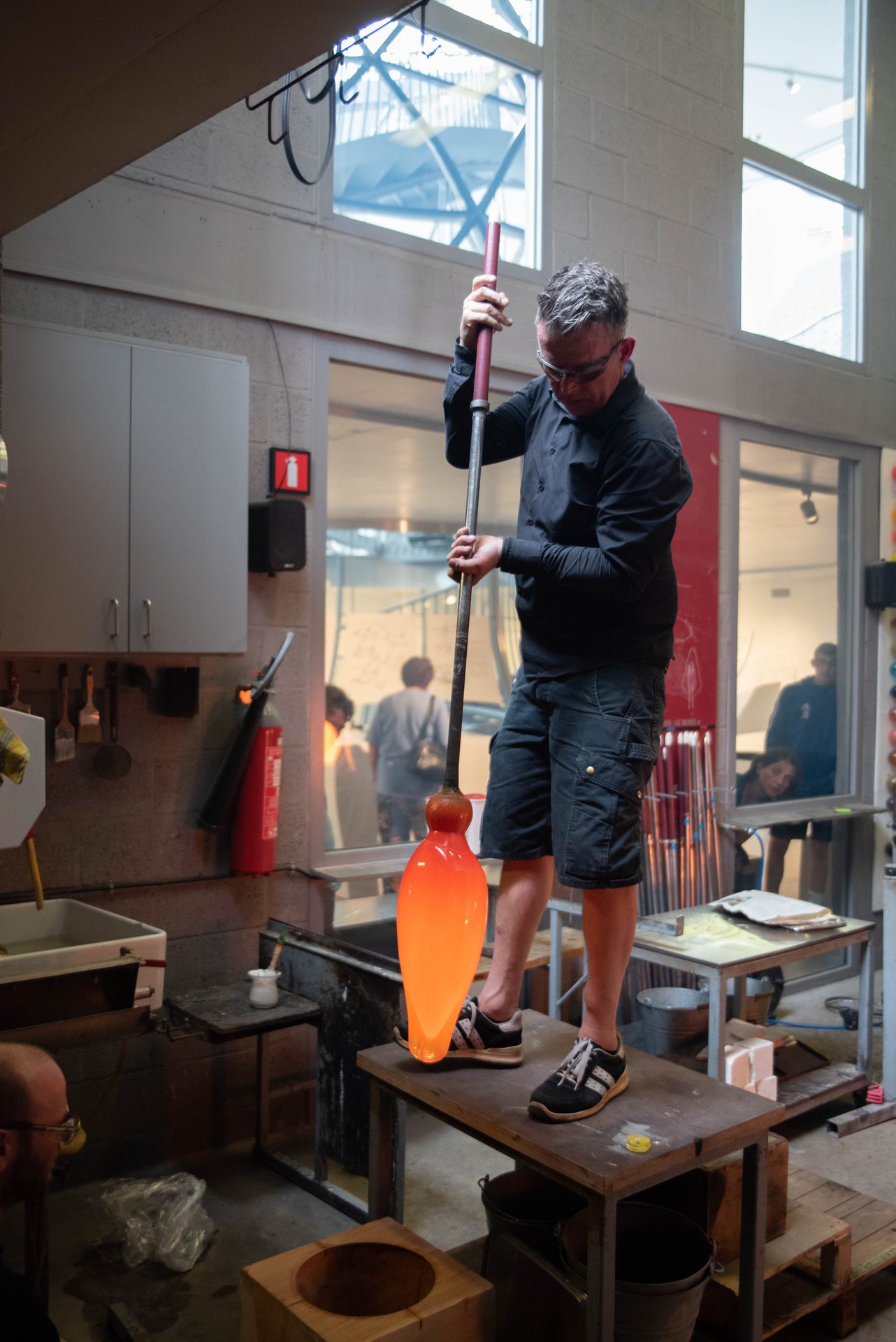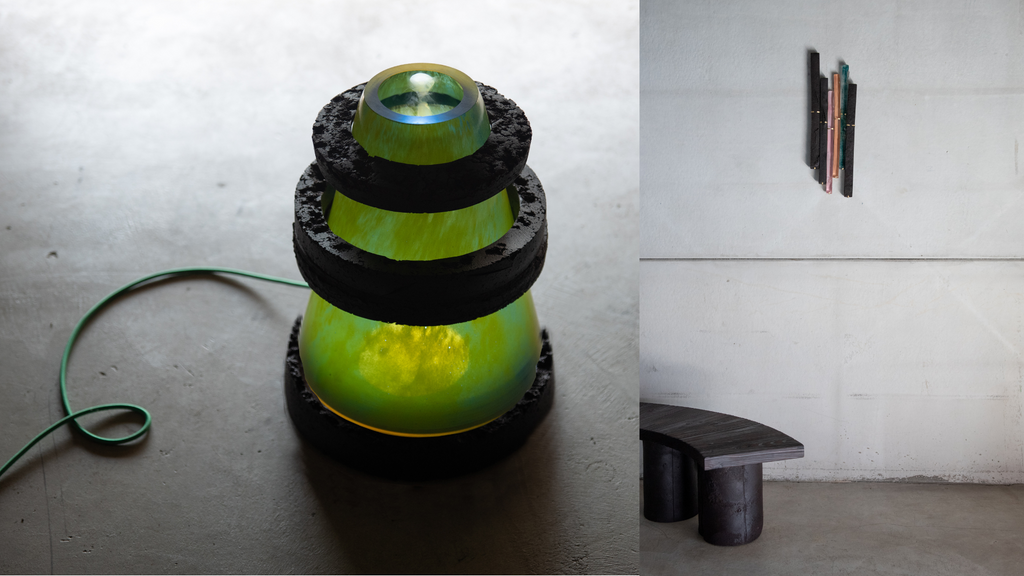Flemish designer Marijke Jans and Brussels makeup artist Naomi Waku have collaborated on an art installation that highlights what usually is kept in the dark: depression.
The Cage includes table-top vessels and a wall hanging that highlight the stark contrast between their two principal materials: dark coffee grounds and brilliantly coloured glass – Jans' and Waku's artistic strengths, respectively. "If I was on my own, I could have never made this. But that's the point of the exercise," Jans explained.
The duo's collaboration is part of a project called Binôme, organised by the design platform FOR THE NOW (formerly known as Contemporary Design Market), which brings together unlikely partners to foster connection through diverse artistic approaches and cultural backgrounds.
The Cage will be showcased this weekend alongside other Binôme partner's work at the Gare Maritime Tour & Taxis venue as one of the many Brussels Design September festival.
Different backgrounds
Jans and Waku both came to art later in their careers. Jans co-owned a construction company for 12 years before going to art school and falling in love with furniture and object design. She started creating designs with organic and regenerative materials before eventually settling on her signature material: coffee grounds. These are sourced from coffee shops, office buildings and hospitals.
Jan's artwork is biodegradable through its use of organic material (and natural binders like biopolymer) and will eventually return to the earth.

Coffee as raw material. Credit: Marijke Jans
Waku also experimented widely finding her calling. After high school she attended a fashion academy in Antwerp, a university in Rotterdam and even a business school. But it was eventually makeup and social media where she established herself.
"I found happiness by doing makeup and sharing my work," Waku explained. From the beginning, the goal was to turn her social media account into a business. She slowly grew her following and began winning contests for brands. As she grew in popularity, she became well known for her use of brilliant colours and ventured into other artistic disciplines.

Makeup artist Naomi Waku, @namglam on Instagram. Credit: @namglam via Instagram
The Binôme project
Jans and Waku were hand-picked and intentionally partnered by FOR THE NOW. The pair were excited from the start about how such different creators could collaborate: "We both knew that we were very different but that's the whole point of this concept and we got along," Jans explains.
Yet the start of the project was also marked by the death of one of Waku's high school friends due to mental health issues. Through intimate conversations it emerged that both artists had themselves faced mental health struggles. Depression specifically was a very important topic to them and a topic they wanted to address more directly.
Jans and Waku decided that their installation would shine a light on the reality of depression. But the artists and now friends admitted that after agreeing on the topic, they both felt stuck. "Figuring out what we wanted to tell was easy. I mean, relatively easy," Jans laughed, "But we got stuck translating the idea into an object."
Numerous brainstorming sessions followed to work out how to manifest the experience of depression in an art installation. The duo created three installations that incorporated Marijke's preferred material (coffee), Waku's speciality (brilliant colours) and glass – the substance of honour for this year's Brussels Design September festival.

Glass working for Waku and Jan's project.
Neither had ever worked for glass and so called on experienced artisans to help. It was important that everything was made by hand so that the artwork was completely unique, perhaps also reflecting the fact that everyone experiences mental health differently. For her part, Jans describes depression as a feeling of being locked in or trapped. Yet Waku expresses her feelings of depression as falling off a cliff – constantly falling.
With this in mind, every element in The Cage was made with a similar design concept: bright glass framed by darkness, representing our real selves and feelings of depression.
Spreading awareness
It is no secret that many individuals with mental health issues struggle to come out and ask for help. This led Jans and Waku to make imposing, eye-catching pieces that command attention.
Though reported levels of depression and anxiety have fallen since the peaks seen during the Covid-19 pandemic, 15% of Belgians had anxiety in June of this year whilst 12% had depressive disorders. Experts have highlighted an unprecedented mental health crisis among young Belgians after a report claimed that their use of anti-depressants and anti-psychotic medication has sharply increased in the last five years.
Related News
- Teenage suicide crisis in Belgium, experts raise the alarm
- Students' mental health problems are not schools' responsibility, minister says
- 'I am shocked': Use of anti-depressants surges among Belgium's youth
"I hope viewers really take the time to see it," Waku said about their installation, on display this Saturday and Sunday. "I hope they feel something."
"I also want people to experience a new design language. I think what we made is out of the ordinary," Jans added. "Will this project have an impact? I don't know. But the more we talk about it, the sooner things will change."

